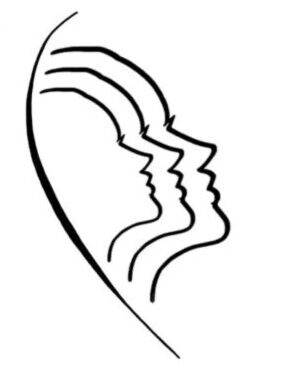Craniofacial Surgeon
The craniofacial surgeon is a surgeon who has undergone extensive training in treating craniofacial conditions after completing a residency in maxillofacial and/or plastic surgery. As the team leader, this doctor coordinates the efforts of all other specialists. Through years of experience in treating craniofacial deformities, the craniofacial surgeon is able to recognize the more subtle distortions of the craniofacial region.
Oral and Maxillofacial Surgeon
Oral-Maxillofacial Surgery is a surgical specialty which involves the diagnosis, surgery and adjunctive treatment of diseases, injuries and defects involving both the functional and aesthetic aspects of the hard and soft tissues of the oral and maxillofacial region.
Pediatric Neurosurgeon
The pediatric neurosurgeon works with the craniofacial surgeon in patient evaluation and surgical procedures. The unique partnership between the neurosurgeon and craniofacial surgeon has led to the development of many new techniques at the center that allow for successful treatment of anomalies once thought uncorrectable.
Pediatric Neuroradiologist
The pediatric neuroradiologist is a physician who aids the surgeons in patient diagnosis and treatment. The radiologist uses a wide array of techniques, including computerized axial tomography (CAT scan), three-dimensional reconstruction of CAT scans, and magnetic resonance imaging (MRI) to document a child’s condition.
These exams provide much of the information needed to define a patient’s craniofacial problem. Images of the skull and facial bone structure, as well as the soft tissues of the brain, orbits and face, are studied in planning corrective surgery.
Pediatric Anesthesiologist
The anesthesiologist is a specialist in pediatric anesthesia and neuroanesthesia who monitors and supports the patient’s vital signs during surgery. He or she also uses special techniques such as hypotensive anesthesia to decrease blood loss.
Neuro-ophthalmologist
Craniofacial surgery often requires that the eyeball be moved or the skeleton be repositioned around the eye. The neuro-ophthalmologist performs a detailed examination of the eyes and evaluates the visual portion of the nervous system in order to predict what may happen when the eyes are moved in space.
Otolaryngologist
The otolaryngologist examines the patient and provides treatment for any problems relating to the ear, nose or throat. Particular attention is given to any structural abnormalities in the airway that might interfere with or influence the delivery of anesthesia during surgery.
Speech Pathologist
The speech pathologist provides assessment, diagnosis and treatment of speech and language problems, including detailed assessments of speech and palate function prior to surgery. When required, the pathologist makes audio and video recordings for analysis of speech sounds and lip and tongue movements, as well as to keep a record of the patient’s speech progress throughout treatment.
Geneticist / Pediatric Medicine
The geneticist determines whether a patient’s problems fit a known syndrome, providing the foundation for genetic counseling. Because some craniofacial syndromes are known to be hereditary, the geneticist may be able to advise you as to the risks for siblings and unborn children.
The information obtained by the geneticist also helps expand the current body of knowledge about craniofacial disorders. As more disorders are discovered and described in medical literature, new methods of treatment, and possibly prevention, can be developed.
Psychologist / Social Worker
Craniofacial deformities can have devastating effects. Together, the psychologist and social worker evaluate the effects of the facial deformity on patients and their families. Early in treatment, they work with the patient and family to set realistic expectations for surgery.
They answer questions concerning the surgery or hospital stay and provide insights that are helpful in preparing for surgery. They also provide family and individual counseling and referrals.
The psychologist uses a variety of age-based tests to evaluate the patient’s intellectual potential, academic achievement and psychological preparation for surgery. The social worker meets with parents to obtain a complete family history, assess coping abilities and expectations, and provide referrals to community resources, including family and patient support groups.
The psychologist and social worker serve as valuable family resources both when patients are in the hospital and after they return home.
Pedodontist / Orthodontist
The pedodontist and orthodontist play significant roles in the care of craniofacial patients, providing preventive, educational and therapeutic services related to oral hygiene.
The orthodontist may apply braces and plan surgical corrections to determine the amount of dental-skeletal movement necessary to achieve desired results.
Regular visits with the pedodontist (i.e., a pediatric dentist) and orthodontist are a critical part of the craniofacial patient’s care plan and help ensure optimal healing after surgery.
Note: The information above should not necessarily be considered valid for diagnosis or treatment of any specific patient. Only competently trained medical professionals can appropriately diagnose and treat someone with craniofacial birth defects
